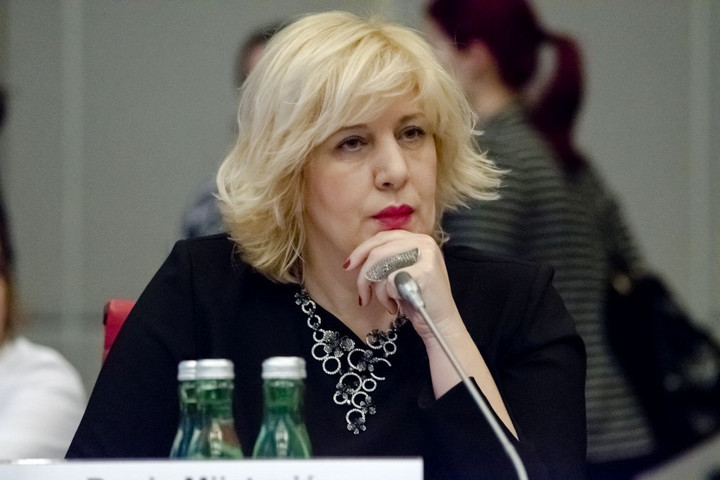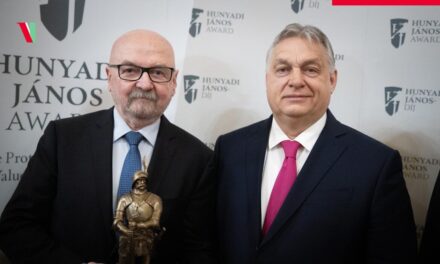The memorandum of the Human Rights Commissioner of the Council of Europe on the situation of media freedom in Hungary published on Tuesday is biased, based on assumptions instead of facts, raises questions that were closed years ago, and raises doubts about its objectivity.
The memorandum of the Human Rights Commissioner of the Council of Europe on the situation of media freedom in Hungary published on Tuesday is biased, based on assumptions instead of facts, raises questions that were closed years ago, and raises doubts about its objectivity, stated the competent ministerial commissioner of the Prime Minister's Office, the Ministry of Justice and the National Media and the Communications Authority (NMHH) on Tuesday.
The speakers responded to Dunja Mijatovic's memorandum published on Tuesday, in which the human rights commissioner of the Strasbourg-based Council of Europe called for the restoration of journalistic and media freedom in Hungary.
The Hungarian authorities stated in their comments that the document relies mainly on the analysis of "a handful of well-known" government-critical NGOs and articles from online news portals, which raises doubts about the objectivity of the memorandum.
The language of the report is biased and misleading at certain points, because it presents one part of the media as pro-government and the other as independent, they wrote.
"The government strongly objects to such a wrong approach," they said.
According to their information, the memorandum raises questions that were closed years ago, and they are also related to legal frameworks related to the media law that have already been amended. Among them, among other things, it was highlighted that, based on the comments of the Council of Europe, the March 2013 amendment of the media law further strengthened the safeguards on the basis of which the media authority can perform its tasks independently, and its supervisory bodies are appointed in a democratic and transparent manner.
The current provisions of the Media Act ensure the election of candidates above the parties, and exclude representatives, officials and employees of political parties, as well as those involved in party politics, from becoming members of the media council. The purpose of the provisions is to ensure independence from any kind of political interference attempt, they wrote.
They further stated that the memorandum's assertion that judicial review of media council decisions is limited is fundamentally wrong, based on a misunderstanding and misinterpretation of the law.
All decisions of the media council can be appealed against in the courts above the public administration, they pointed out.
They cautioned that certain chapters of the memorandum reflect the personal views of the Human Rights Commissioner. Such, in which he notes that "Hungarian society is extremely polarized, and this adversely affects the free flow of information and opinion."
The comments are not supported by facts or evidence, the mention of some specific cases cannot lead to conclusions regarding general trends, they added.
It was emphasized: Hungarian media regulation complies in all respects with the principles of the rule of law guaranteed by the European Union and Hungarian legislation.
The Hungarian government is disappointed that the memorandum is based on assumptions instead of facts, despite the fact that many government bodies shared their opinions and insights and provided the document's author with adequate background information, the text reads.
In times of uncertainty and threats caused by the pandemic, it is even more important how institutions such as the Council of Europe formulate their opinion on the media relations and media regulation of a given country. An objective assessment of individual member states is more important than ever. Objectivity and a fact-based and balanced investigation should be the guiding principle in evaluating the implementation of individual human rights norms, they added.
In her memorandum, Dunja Mijatovic wrote, among other things, that since 2010, the Hungarian government has regularly undermined independent and professional journalism, thereby limiting the free exchange of different opinions. He believed that "accountability and professional sophistication are lacking" in the public service and the government media, and that the work of independent media and investigative journalists "faces increasingly serious obstacles, or is purposefully hindered."
The human rights commissioner added that the media law should be amended in order to reverse the situation and limit the excessive powers of the president of the media authority, as well as limit his discretion.
MTI
Cover photo: Dunja Mijatovic, Council of Europe Commissioner for Human Rights/ Photo: AFP












